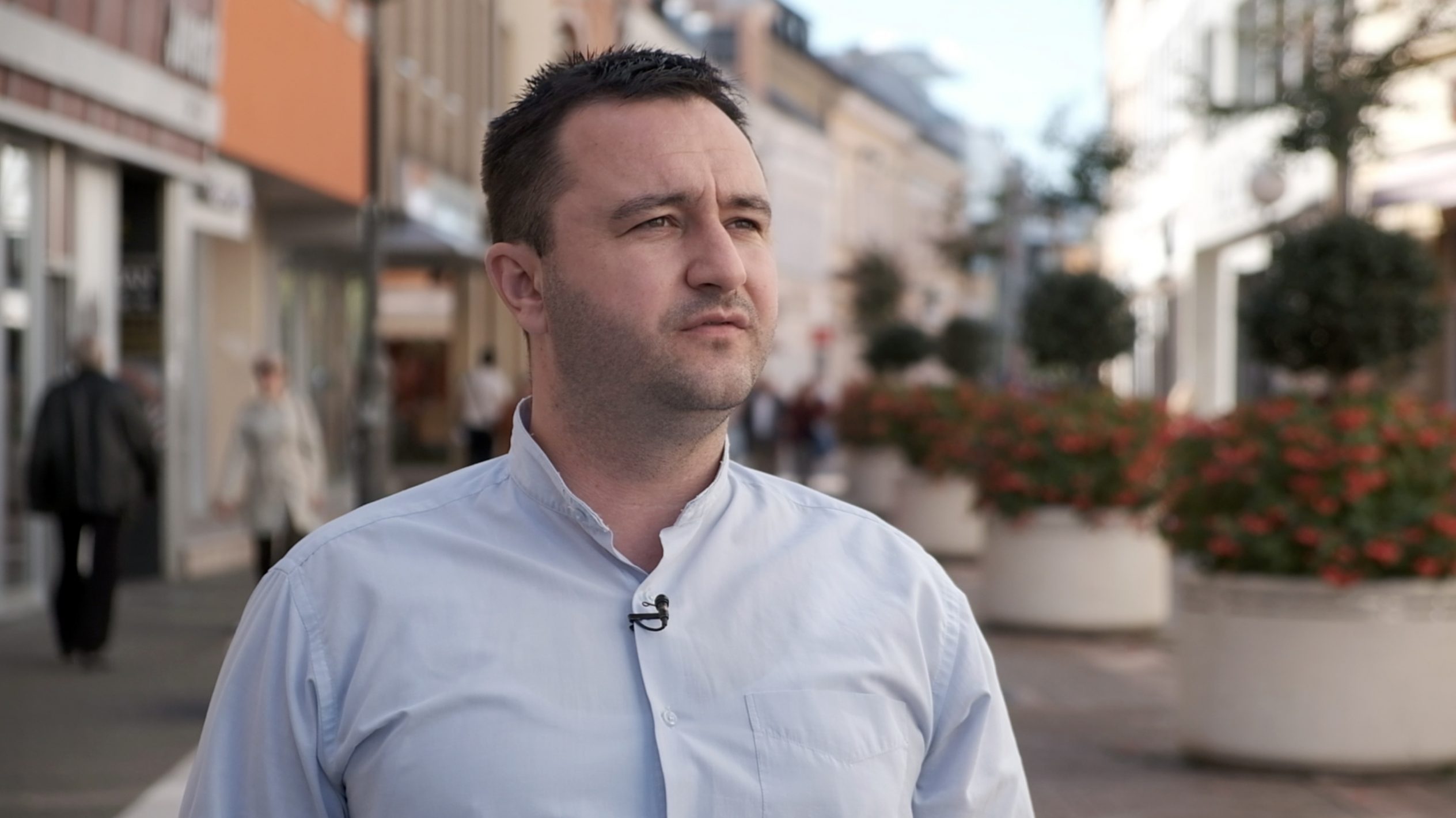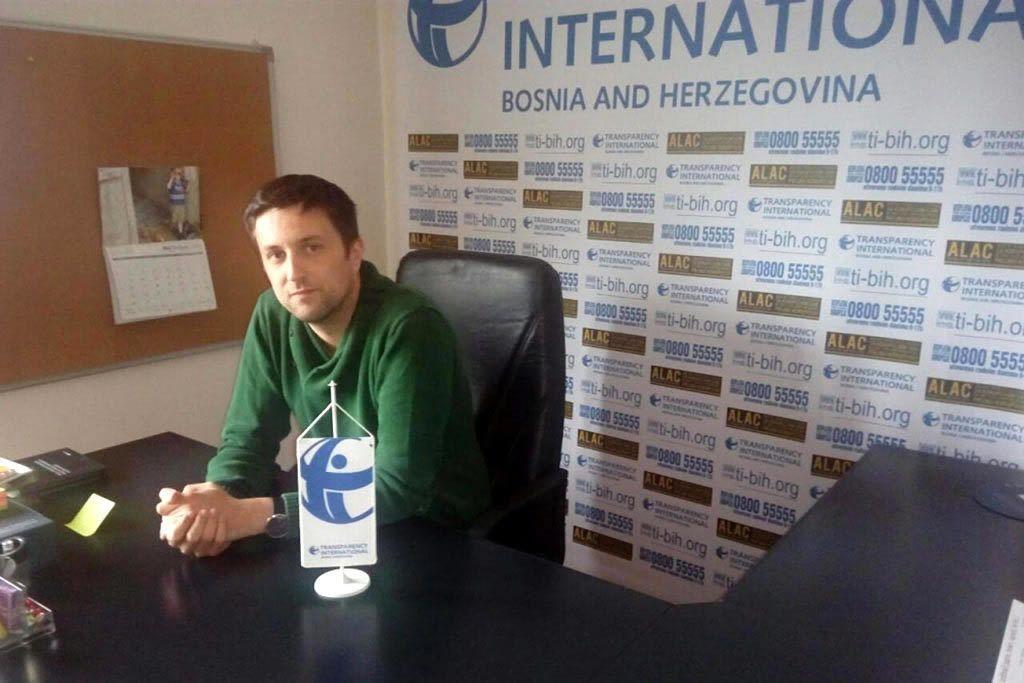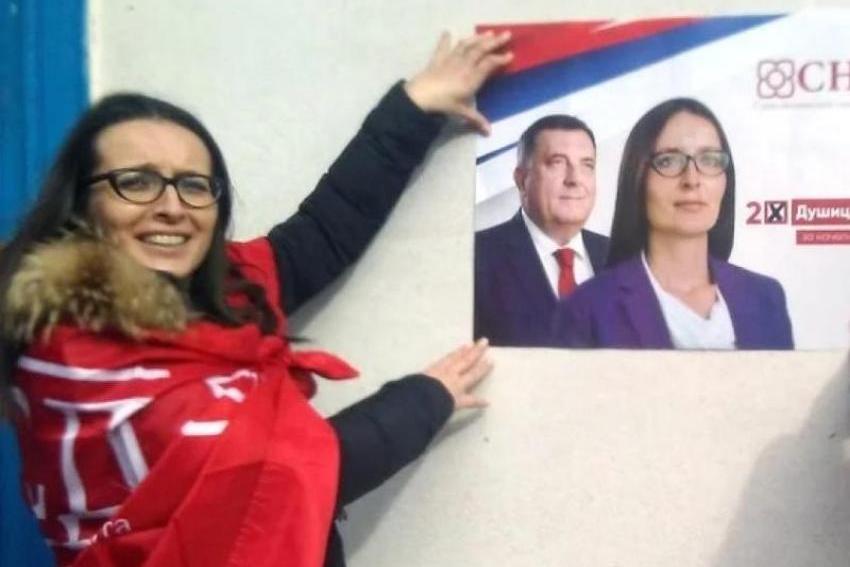At the end of November, not even two weeks before December 9, the International Day of Fight against Corruption, protected corruption witness Emir Mesic was fired from the Indirect Taxation Authority (ITA).
Written by: Mirna Stankovic – Lukovic
According to the statement sent by the ITA after a large number of media inquiries, the termination of Emir Mesic’s employment was the result of disciplinary proceedings initiated against him in May this year due to a serious violation of official duty. That is, “on several occasions during 2018, he did not act in accordance with the rules of the service”, and that such an act created a material obligation for the ITA in the amount of more than 6,500 KM, increased by the amount of interest”, writes the portal Inforadar.
The question to which the ITA did not provide an answer is – how is it that disciplinary proceedings were initiated in May 2020 for a breach of duty that occurred two years earlier!
“The procedure itself is retaliation that was announced because those facts were known to the ITA before, and this is not about some new rules, new actions, no violation of any regulations. “This is a classic example of revenge with which they want to show first of all to me, but also to my colleagues, what will happen to whistleblowers, those who work according to their conscience,” Mesic told Inforadar.

As Ugljesa Vukovic from Transparency International in Bosnia and Herzegovina explains for Interview.ba, disciplinary proceedings and degradation at work are the most common forms of pressure suffered by people who decide to report corruption.
“What whistleblowers most often report to us, what they experience after reporting corruption, are often examples of professional degradation, disciplinary proceedings are initiated against them because they reported corruption, some even lose their jobs, decisions on termination of employment are made, either due to disciplinary proceedings or due to some other reasons, they are often faced with mobbing, they are not given the tasks that were normally given to them, they do not have access to the data that they otherwise had,” says Vukovic.
According to information obtained by Interview.ba, the largest number of reports of possible corruption comes from the Indirect Taxation Authority and the Central Bank. Vukovic confirms these allegations and adds that these are large institutions with a large number of employees.
“What we have noticed and what worries us is that after the people from those institutions filed the report, they were faced with disciplinary persecution. Most often, these were disciplinary proceedings initiated against them only because they went public or even just because they filed complaints with another institution,” says Vukovic, emphasizing that those who report corruption should not suffer the consequences because they went public or because they filed a report.
“There was even a situation that a person only went public and that the internal acts of these large institutions were used as a basis for disciplinary action for damaging the reputation of their institution or for allegedly going beyond their authority, because they are not people who normally do jobs such as public relations”, says Vukovic.
The Indirect Taxation Authority of BiH states in its statement that during the disciplinary procedure, and due to the fact that Emir Mesic has the status of a protected whistleblower, it asked for the opinion of the Agency for Prevention of Corruption and Coordination of the Fight against Corruption (APIK).
The opinion of APIK “confirmed that the granted status of an employee does not absolve from the obligation to respect and act in accordance with legal regulations and internal acts of the institution in which he is employed, and that no harmful actions have been taken against him.
Also, at the request of APIK, the Administration was inspected by the Administrative Inspectorate at the Ministry of Justice of BiH, during which no irregularities were found in the actions of the Indirect Taxation Authority in relation to Emir Mesic”, reads the ITA statement.
Ugljesa Vukovic from TI BiH points out that what is especially worrying is that they noticed in the last few cases that APIK, in cases where the status of a protected whistleblower could be granted and where the status of a protected whistleblower has already been granted, does not decide to use all the powers given to them by law, i.e. they do not decide to protect the whistleblower, especially in the part where they can eliminate the harmful actions and harmful consequences suffered by the whistleblower.

“This is what worries us the most as an organization – that the current model of legal protection guaranteed at the state level is not enough and that not all the powers given by law given to the Agency for Prevention of Corruption and Coordination of the Fight against Corruption are used,” says Vukovic.
Emir Mešić is one of only eight people in Bosnia and Herzegovina who have been granted the status of protected whistleblower since 2014. A total of 28 people have applied for this status in the last six years, but only eight have received this status. In only two cases did APIK impose protective measures to reinstate applicants.
“We had one case in RS where one person was returned to his previous job through a temporary security measure imposed by the court. This is precisely the special quality of legal protection that must be guaranteed by bodies such as courts and agencies, when we talk about whistleblowers. However, at the level of BiH, when we talk about the protection provided by APIK, our fear is that APIK does not use all its legal powers. It is not enough for whistleblowers to just say “Here, you have been granted the status of a protected applicant”, but it is necessary to provide them with a special quality of legal protection, which can be done by taking protective measures. “APIK has that authority, when it assesses that it is founded, to issue an instruction to the head of the institution to annul all harmful actions that have been taken against the whistleblower,” says Vukovic.
Such a small number of whistleblowers is particularly worrying, given that state institutions are estimated to have around 22,000 employees. The latest data available from APIK are those from 2017 and say that in that year they received 130 submissions with indications of corrupt behavior, of which only seven were founded.
Data for 2018 and 2019 are not publicly available because there is no Commission for the selection and monitoring of the work of the Agency for Prevention of Corruption and Coordination of the Fight against Corruption. Due to this fact, the Parliament could not consider or adopt the reports on the work of the Agency, so the data on the reported cases of corruption are not available until further notice.
Transparency International says a small number of corruption reports send a signal of the low trust that state institution employees have in APIK.
APIK can offer protection only to employees of state institutions. In the Republika Srpska, the Law on the Protection of Persons Reporting Corruption has been in force since 2017, and protection is granted by the courts to employees and entity institutions, as well as to applicants from the private sector. The Brcko District also has a law, but it is still not being implemented, and in the Federation of BiH, the Law on the Protection of Corruption Reporters has not yet been adopted. Once adopted, it will be similar to the law in Republika Srpska.
“Even when the law is adopted at the level of the Federation, Bosnia and Herzegovina will at some point face the fact that, through the process of European integration, it will have to harmonize these laws with the Acquis Communautaire and at some point whistleblowers with European legislation and that will be the moment when all these laws will have to be reviewed and when greater protection will have to be guaranteed to those who report corruption”, says Ugljesa Vukovic for Interview.ba





